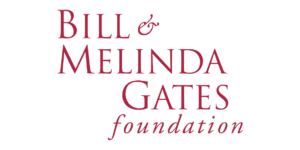Jamaal Matthews, PhD
Research Projects
The Urban Identity Project
The Urban Identity Project takes a developmental social-cognitive approach toward understanding how urban adolescents negotiate their mathematics identity in conjunction with their racial identity during middle school and across the transition into high school. Our research team followed 440 Black and Latinx adolescents over the course of five years using survey methodology, classroom observations, semi-structured interviews, and cognitive assessments. See sample research papers from this project below.
This research is supported by the National Science Foundation DRL Award No #1350814
Belonging-Centered Instruction Project
The desire to belong is intrinsic to our human design and a source of personal worth and motivation. Within the context of schools, my notion of “belonging-centered instruction” holds three core assumptions, 1) belonging is a fundamental necessity for all people; however, 2) sense of belonging in school is often under assault for Black, Brown, and poor children specifically. Finally, 3) teachers have the power to capitalize on belongingness needs, not only through building positive student-teacher relationships, but through their instructional choices and practices as well. This final point challenges the popular misconception that teacher efforts to support students’ positive social experience of their classroom are only relational in nature (e.g., facilitating a positive classroom climate), whereas I argue they are just as much instructional and content oriented (e.g., helping students to see themselves reflected in the content).
My team and I conduct rigorous observational research to explore issues of belonging and belonging-centered instruction in classrooms. I also conduct professional development to turnkey our findings into practical tips for teachers and school leaders.
Sample Research Articles – PDFs
Matthews, J. S., & Wigfield, A. (2024). Past due! Racializing aspects of situated expectancy-value theory through the lens of critical race theory. Motivation Science. Advance online publication. https://doi.org/10.1037/mot0000337
Matthews, J. S., Boomhower, K. M., & Ekwueme, C. (2024). Assimilationist, reformist, and sociopolitical phases of school belonging research: A critical race and optimal distinctiveness review.
Wilson, M., Matthews, J.S. (2024). Black adolescents’ motivation to resist the false dichotomy between mathematics achievement and racial identity. npj Sci. Learn. 9, 15. https://doi.org/10.1038/s41539-024-00219-9
Matthews, J. S., & López, F. (2020). Race-reimaging educational psychology research: Investigating constructs through the lens of race and culture. Contemporary Educational Psychology, 61, doi:10.1016/j.cedpsych.2020.101878
Matthews, J.S. (2018). When am I going to use this in the real world? Cognitive flexibility and urban adolescents’ negotiation of the value of mathematics. Journal of Educational Psychology 110(5), 726-746. doi: 10.1037/edu0000242
Gray, D., Hope, E., & Matthews, J.S. (2018). Black and belonging at school: A case for interpersonal, instructional, and institutional opportunity structures. Educational Psychologist, 53(2), 97-113. doi: 10.1080/00461520.2017.1421466
Matthews, J.S. (2018). On mindset and practices for re-integrating “belonging” into mathematics instruction. TeachingWorks, University of Michigan
Matthews, J.S. (2019). Formative learning experiences of urban mathematics teachers’ and their role in classroom care practices and student belonging. Urban Education
Matthews, J.S. & López, F. (2019). Speaking their language: The role of culture integration and language for mathematics achievement among Latino elementary children. Contemporary Educational Psychology, 57, 72-86. doi: 10.1016/j.cedpsych.2018.01.005
Joseph, N., Hailu, M. & Matthews, J.S. (2019). Normalizing Black girls’ humanity in mathematics classrooms. Harvard Education Review, 89(1), 132-155.
Maloney, T. & Matthews, J.S. (in press). Teachers’ critical care and students’ feelings of connectedness in the urban mathematics classroom. Journal of Research in Mathematics Education
THREADS
THREADS is a group mentorship program, where university undergraduates partner with urban middle school boys around the academic, social, and community issues that impact the mentees growth and development as young men. The program aims to cultivate an environment where the mentees and mentors can strategize around issues that affect their behavior, development, future goals, and identities inside school and out. By developing strong relationships with the boys, the undergraduate mentors learn about the strengths, interests, and skillsets that make each one of them unique and powerful.


